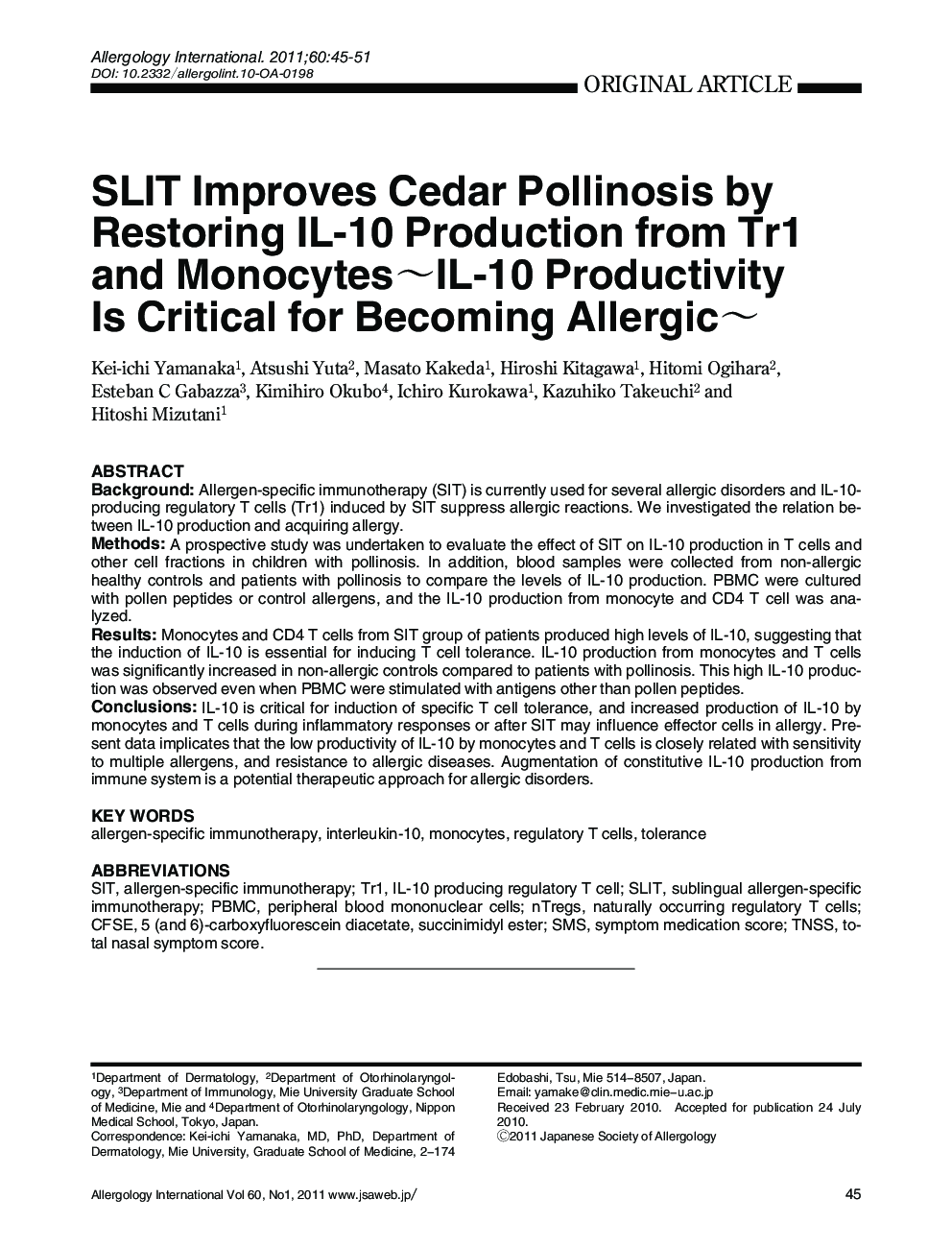| Article ID | Journal | Published Year | Pages | File Type |
|---|---|---|---|---|
| 3340961 | Allergology International | 2011 | 7 Pages |
ABSTRACTBackgroundAllergen-specific immunotherapy (SIT) is currently used for several allergic disorders and IL-10- producing regulatory T cells (Tr1) induced by SIT suppress allergic reactions. We investigated the relation between IL-10 production and acquiring allergy.MethodsA prospective study was undertaken to evaluate the effect of SIT on IL-10 production in T cells and other cell fractions in children with pollinosis. In addition, blood samples were collected from non-allergic healthy controls and patients with pollinosis to compare the levels of IL-10 production. PBMC were cultured with pollen peptides or control allergens, and the IL-10 production from monocyte and CD4 T cell was analyzed.ResultsMonocytes and CD4 T cells from SIT group of patients produced high levels of IL-10, suggesting that the induction of IL-10 is essential for inducing T cell tolerance. IL-10 production from monocytes and T cells was significantly increased in non-allergic controls compared to patients with pollinosis. This high IL-10 production was observed even when PBMC were stimulated with antigens other than pollen peptides.ConclusionsIL-10 is critical for induction of specific T cell tolerance, and increased production of IL-10 by monocytes and T cells during inflammatory responses or after SIT may influence effector cells in allergy. Present data implicates that the low productivity of IL-10 by monocytes and T cells is closely related with sensitivity to multiple allergens, and resistance to allergic diseases. Augmentation of constitutive IL-10 production from immune system is a potential therapeutic approach for allergic disorders.
